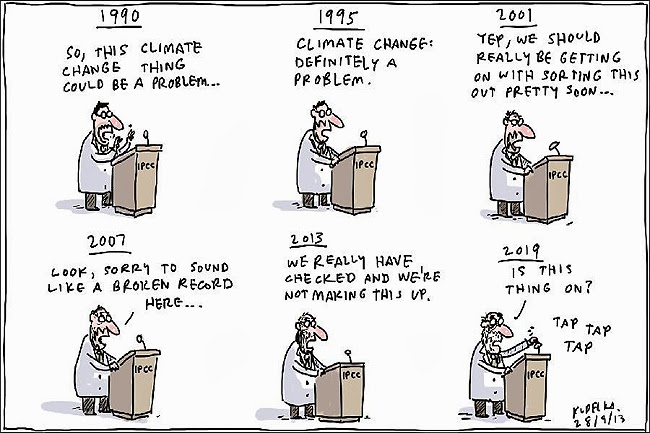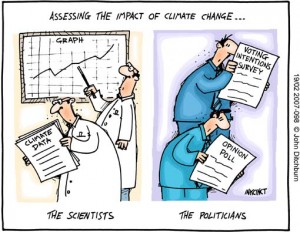Researchers in the public eye have always struggled to find a balance between representing their results and being effective communicators. This was the subject of my recent essay in Climatic Change.
One solution, proposed by Roger Pielke Jr., is to be an “Honest Broker of Policy Alternatives” who provides all the available information and options. Thus, rather than pre-selecting policy options to present, which inevitably involves some value judgements, the honest broker presents all the options and allows the decision-makers to reduce the scope of options.
It is a very reasonable solution to avoid having the researcher’s personal values influence their public statements. From my article:
Failure to consider the possible influence of normative judgements on one’s thinking can lead to “covert” or “stealth” issue advocacy, in which scientists do not perceive the implied advocacy position in their research or public statements (Lackey 2007; Pielke 2007). This can undermine one’s objective of informing the public and policymakers about science and policy options.
Yet many science communicators question whether it is possible to be an honest broker, since the process of filtering and synthesizing research for public consumption involves value judgements. This is especially the case if the data or knowledge is incomplete; the researcher must make a judgement on what information to include.
A recent Twitter exchange with Pielke about his USA Today op-ed piece about hurricane trends and storm protection demonstrated just how hard it can be to control for all personal judgements*.
My suggestion the op-ed was misleading led to some back and forth about the research methods and wound to a close with an honest, funny tweet from Pielke: “Guilty — Most aspects of hurricane mitigation/preparation did not appear in my 700-word op-ed”
The tweet rightly pointed out the absurdity of my complaining about what is and is not included in a short op-ed. How could anyone fully explain the difficulty of estimating for the influence of storm preparation on the costs of storm damage, let alone all of the other research studies on the subject, in 700 words? Especially if you want those 700 words to be interesting enough to be accepted by a major newspaper?
In presenting the findings to the public, subjective judgements had to made about which findings warrant mention. Yet this is what someone playing the honest broker would seek to avoid. A partial solution to this dilemma, suggested years ago by Stephen Schneider and discussed in my article, is to make backup materials available. Today, a blog is an easy, accessible way to present the detailed evidence behind a position taken in a shorter public statement. Many of us, including Pielke, maintain blogs for that reason.
presenting the findings to the public, subjective judgements had to made about which findings warrant mention. Yet this is what someone playing the honest broker would seek to avoid. A partial solution to this dilemma, suggested years ago by Stephen Schneider and discussed in my article, is to make backup materials available. Today, a blog is an easy, accessible way to present the detailed evidence behind a position taken in a shorter public statement. Many of us, including Pielke, maintain blogs for that reason.
The problem is that we are still making choices in preparing that backup material. And, regardless, few people will ever read the material. We’re lucky if they read the whole op-ed, rather than just the headline! One outcome of this is that even if a researcher perceives herself or himself to be close to the honest broker ideal, others may not.
It is for these reasons that I encourage students to understand their motivations and personal biases, rather than strive to be objective automatons. We can’t remove all personal judgements. But we can strive to be honest with ourselves about our values and motivations and take them into account when engaging with the public. From my essay:
Finding a comfortable and effective position on the science-advocacy continuum requires analyzing ourselves with the same rigour we would use to analyze our data.We are scientists, but we are also citizens, voters, taxpayers, parents, children and homeowners. Research on science communication suggests that we must consider our knowledge, our motivation, our cultural values and our ability to reach different audiences in order to be effective at public engagement… This self-analysis is critical to making personal biases explicit and separate from scientific findings, to recognizing the limits of your communication abilities, and to protecting the hard-won public trust in science.
